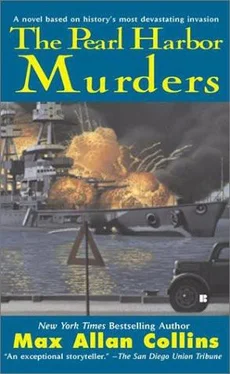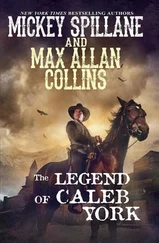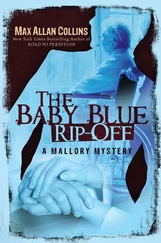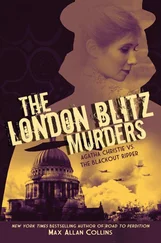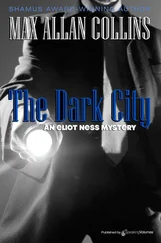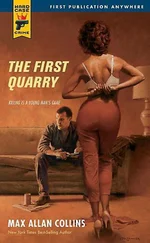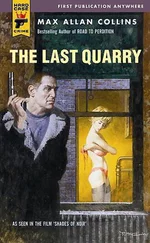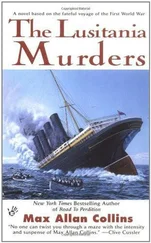Max Collins - The Pearl Harbor Murders
Здесь есть возможность читать онлайн «Max Collins - The Pearl Harbor Murders» весь текст электронной книги совершенно бесплатно (целиком полную версию без сокращений). В некоторых случаях можно слушать аудио, скачать через торрент в формате fb2 и присутствует краткое содержание. Жанр: Криминальный детектив, на английском языке. Описание произведения, (предисловие) а так же отзывы посетителей доступны на портале библиотеки ЛибКат.
- Название:The Pearl Harbor Murders
- Автор:
- Жанр:
- Год:неизвестен
- ISBN:нет данных
- Рейтинг книги:5 / 5. Голосов: 1
-
Избранное:Добавить в избранное
- Отзывы:
-
Ваша оценка:
- 100
- 1
- 2
- 3
- 4
- 5
The Pearl Harbor Murders: краткое содержание, описание и аннотация
Предлагаем к чтению аннотацию, описание, краткое содержание или предисловие (зависит от того, что написал сам автор книги «The Pearl Harbor Murders»). Если вы не нашли необходимую информацию о книге — напишите в комментариях, мы постараемся отыскать её.
The Pearl Harbor Murders — читать онлайн бесплатно полную книгу (весь текст) целиком
Ниже представлен текст книги, разбитый по страницам. Система сохранения места последней прочитанной страницы, позволяет с удобством читать онлайн бесплатно книгу «The Pearl Harbor Murders», без необходимости каждый раз заново искать на чём Вы остановились. Поставьте закладку, и сможете в любой момент перейти на страницу, на которой закончили чтение.
Интервал:
Закладка:
Max Allan Collins
The Pearl Harbor Murders
ONE: December 5, 1941
ONE
In less than forty-eight hours, six Japanese aircraft carriers-220 miles north of the island of Oahu-would launch 350 warplanes in an attack not preceded by any formal declaration of war. Every significant Naval and air installation would feel the brunt of the surprise raid, which lasted less than two hours and cost the United States military three destroyers, three cruisers, eight auxiliary craft, eight battleships, 188 aircraft and the lives of 1,763 officers and men. This figure increased to 2,404 when fatalities ashore-including civilian-were added to the grim roster.
To the survivors, these deaths seemed more like murder than casualties of war: the unsuspecting victims on the Arizona, a thousand sailors on a single battleship obliterated by a single bomb during peacetime, were victims of a sneak attack one historian aptly termed as "outside the bounds of traditional warfare … better described as mass murder."
The first of these Pearl Harbor murders, however, took place not on December 7, but in the predawn hours of December 6… a murder that might have been an early warning signal, had it been properly heeded.
Making sense of the inherently senseless act of murder is never an easy task; but two men tried, a father and son, and this is their story.
Hully (short for Hulbert) Burroughs found Honolulu very much to his liking. At thirty-two, a leanly muscular six-footer with an oval, boyishly handsome face and a shock of dark hair, Hully found this tropical town an excellent place for a gainfully employed young bachelor to spend an extended vacation.
When he had first arrived, in September, Hully-perhaps reduced to a child again, in bis father's presence-had all but raced to the Aloha Tower, adjacent to where his steamer, the S. S. Mariposa, had docked. His pop had humored him, tagging along to the white ten-foot Art Moderne tower with its four looming clock dials, going up the self-service elevator to the observation deck, open to the sky, a view on every side.
Looking toward the open sea, Hully took in a vista that included a harbor channel dotted with small and large craft, powered by sail or motor. At the west, toward Pearl Harbor, a Dole cannery water tower painted to resemble a huge pineapple rose absurdly above green cane fields, like a World's Fair pavilion. Looking east, toward Waikiki, frond-flung boulevards pointed to Diamond Head. And looking inland, north, he could note the low-slung cityscape of red-tiled roofs and tin-awning-shaded stores rising in tandem with palm trees, pink stucco structures providing pale smears of color amid stark blossoms of red, white and blue; he could see, too, like pyramids piercing an oasis, the austere limestone edifices of the trading houses and banks of the Caucasian (haole) upper class… and the grandly, even ridiculously rococo Iolani Palace… and the Nu-uanu Valley, hugged by the ridges and slopes of the Koolau range….
He had soon come to know Honolulu as the tiny colonial city it was, a low-key paradise where your wake-up call was courtesy of a mynah bird, where you drifted down to a white beach for a sunrise swim, where the workdays were short and the evenings endless.
His father, not surprisingly, took a less romantic view: what O. B. — "Old Burroughs," the nickname Hully, his brother Jack and sister Joan all used for their father, after he took to signing his letters to them that way-saw as Hawaii's appeal was the casual island atmosphere, white sandy beaches and local dress that ran to untucked shirt, shorts and sandals.
At sixty-six, Hully's pop could have passed for fifty, a rugged man's man, with laughing squinty blue eyes set in a poker face the same oval shape as Hully's, only without the dark hair on top: the old man was bald but for iron-gray bristles at his temples. Ed Burroughs had long been a devout sunbather, and was tanned to a rich bronze worthy of Tarzan himself.
Which was fitting, because Hully's father was Edgar Rice Burroughs, who was also the father of Tarzan, "the best-known literary character of the twentieth century," according to a recent issue of The Saturday Evening Post. That same magazine had dubbed the unpretentious novelist who created the famed apeman "the world's greatest living writer" … an irony Hully's pop bitterly savored, since the Post had rejected every story he had ever sent them, including one after the publication of that laudatory article.
It was a few minutes past noon, and Hully and his father were once again at the dock, seeing off friends who were boarding the fabled Great White Ship of the Matson Line, the S. S. Lurline. Normally, his pop-who disliked crowds-would have disdained Honolulu's famed Boat Day, with its mobbed pier, its barrage of streamers, its confetti snowstorm.
Pop even rejected the delightfully swaying hips of hula girls, and Hully could well understand why his dad loathed the din of the strumming ukuleles of beach-boys serenading women they'd seduced combined with the blare of the Royal Hawaiian Band.
Some of these brown-as-a-berry local boys were diving for coins from the top decks.
"Buster Crabbe used to do that," Hully reminded his father teasingly. Beachboy Buster had been an Olympic star before going to Hollywood.
"Maybe he made a good beachboy," O. B. said. "But he was still a lousy Tarzan."
Due to fear of war with Japan, the dock was more heavily guarded than ever before. The authorities-and the haole citizenry-were well aware that 40 percent of Hawaii's population was Japanese; so the nationalized Hawaii Territorial Guard had been called out. Of course, the Guard was primarily made up of Japanese. …
It seemed to Hully that the women at the dock today greatly outnumbered the men-military wives, most likely, being sent to the mainland because their husbands suspected the coming war with Japan would soon restrict travel from Hawaii to California. But it wasn't all men: as usual, politicians and businessmen were among the masses, making deals, trading gossip.
This Boat Day crowd ran well into the thousands, though only eight hundred passengers were departing; and this was typical. Matson Line calendars, marking days of departure and arrival, hung in kitchens and businesses all over Honolulu, and many a housewife and downtown office worker regularly left their respective stations to join in on the Boat Day festivities.
"Looks like a goddamn ice-cream-salesman convention," his pop had grumbled, referring to the overbearing, sun-reflective whiteness of the crowd's attire-females in white cotton dresses shaded by white parasols, Naval officers in dress whites. Like so many civilian males here today, the Burroughses themselves were in white linen suits-no shorts and sandals for Boat Day-and white Panama hats. Pop had his Panama brim snugged down, so as not to be recognized.
His dad didn't mind doing publicity-he often posed on the set of the MGM Tarzan pictures, with Hollywood's current apeman, Johnny Weissmuller-when it was structured, a part of his work. When he went out socially, he abhorred the kind of attention the local reporters would stick him with, if they spotted him.
Typically, Pop had lain back when Hully escorted Marjorie to the gangway, knowing that the photographers would be snapping at her heels like hungry dogs. Marjorie Petty-who for the last five glorious weeks Hully had been dating-was the daughter of pinup artist George Petty; she was, in fact, a living Petty Girl right out of the pages of Esquire, since she was her father's model.
It had been an innocent romance, a few kisses exchanged under the gold moon in a purple sky. But Marjorie-enjoying a Hawaiian vacation as a college graduation present-was almost constanty chaperoned by her mother (Petty's previous model), who looked somewhat askance upon the ten-year age difference between the Petty girl and the Burroughs boy.
Читать дальшеИнтервал:
Закладка:
Похожие книги на «The Pearl Harbor Murders»
Представляем Вашему вниманию похожие книги на «The Pearl Harbor Murders» списком для выбора. Мы отобрали схожую по названию и смыслу литературу в надежде предоставить читателям больше вариантов отыскать новые, интересные, ещё непрочитанные произведения.
Обсуждение, отзывы о книге «The Pearl Harbor Murders» и просто собственные мнения читателей. Оставьте ваши комментарии, напишите, что Вы думаете о произведении, его смысле или главных героях. Укажите что конкретно понравилось, а что нет, и почему Вы так считаете.
